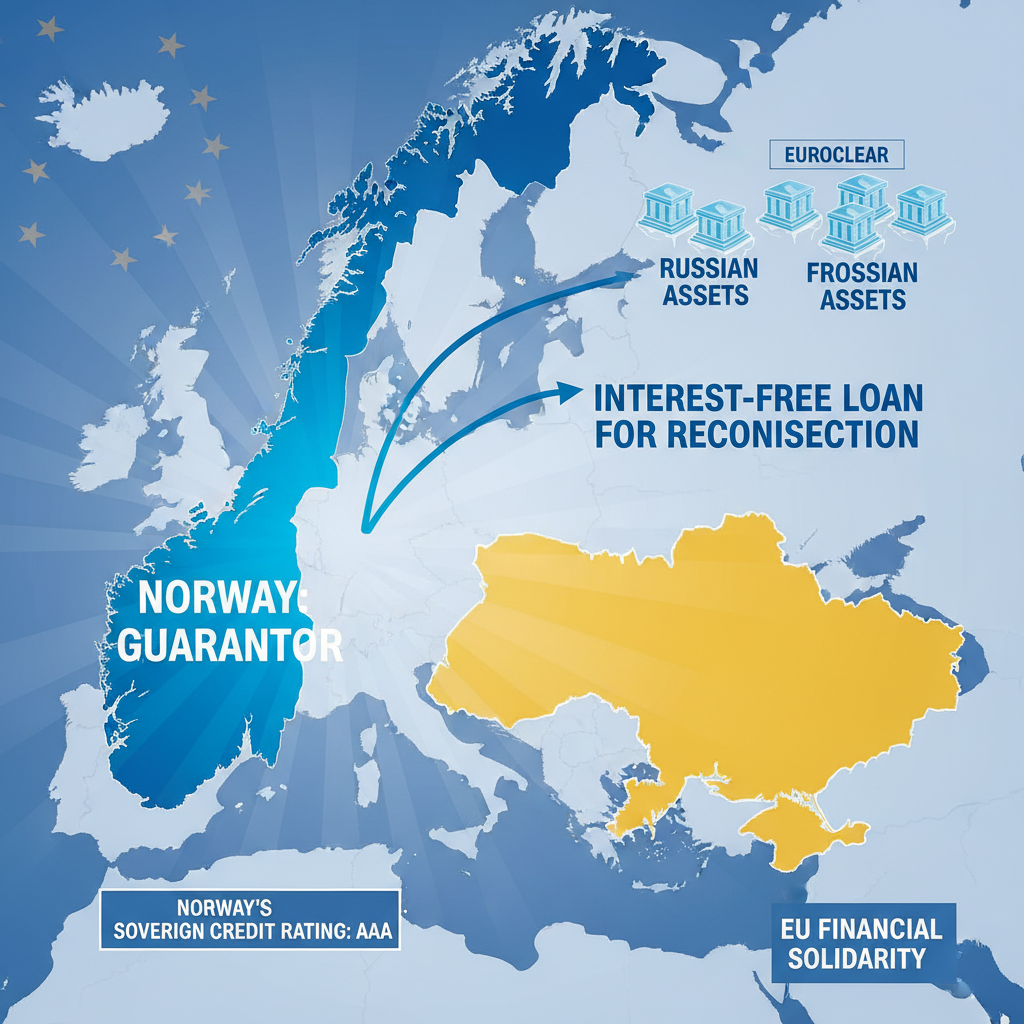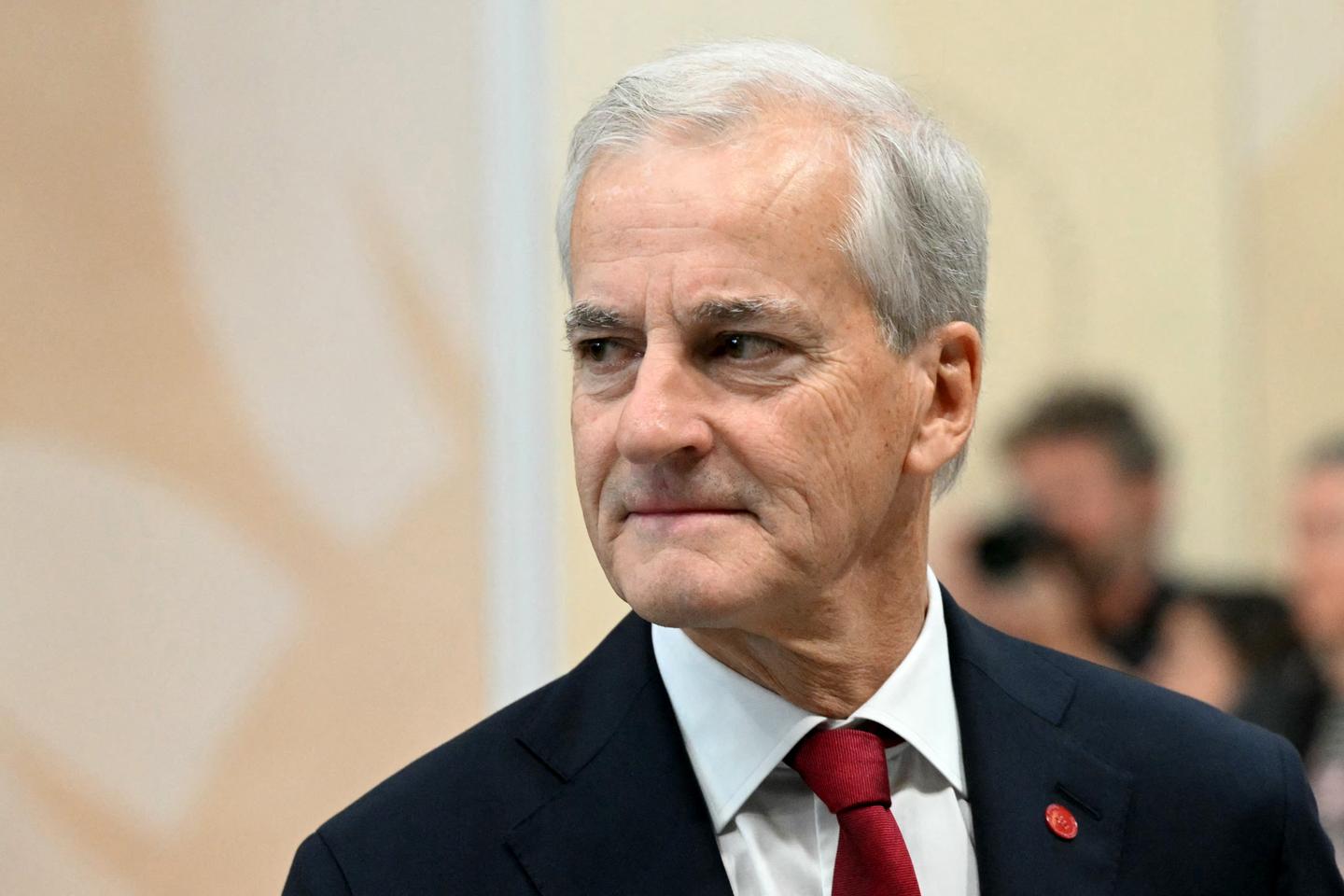
Norway to Guarantee Interest-Free Loan for Ukraine Using Frozen Russian Assets
Amid the ongoing Russia-Ukraine conflict, EU member states are exploring financial avenues to support Ukraine’s reconstruction.
A key proposal involves Norway guaranteeing an interest-free loan secured by frozen Russian assets held in European institutions like Euroclear.
Norway’s strong sovereign credit rating and financial stability make it a credible guarantor candidate.
This proposal reflects the EU’s commitment to financial solidarity amid geopolitical risks.
Using frozen Russian assets aligns with international norms on reparations and supports Ukraine’s urgent recovery needs.
Summary
Frequently Asked Questions
Q: Norway guarantee Ukraine loan
A: Norway has provided a government guarantee to support loans extended to Ukraine, helping the country secure crucial financial resources during challenging economic times. This guarantee reduces the risk for lenders, encouraging investment and aid to Ukraine. Norway's support aligns with international efforts to bolster Ukraine's economy amid geopolitical tensions and recovery needs.
Q: EU reparations loan for Ukraine
A: The European Union has proposed or discussed providing financial support to Ukraine in the form of loans and aid to help the country recover from the damages caused by the conflict with Russia. This support is considered part of broader efforts to assist Ukraine in reconstruction and rebuilding critical infrastructure. However, formal agreements and terms regarding reparations loans specifically may still be under negotiation, as the EU focuses on immediate humanitarian and economic assistance alongside long-term recovery plans.
Q: Norway credit rating and loan guarantee
A: Norway has a very strong credit rating, often rated as one of the highest by major credit rating agencies such as Moody's, S&P, and Fitch due to its stable economy, strong fiscal policies, and extensive sovereign wealth fund. This high credit rating allows Norway to issue government bonds at low interest rates and provides a reliable backing for loan guarantees. A loan guarantee from the Norwegian government or its related entities assures lenders that the government will cover the debt if the borrower defaults, thereby reducing lending risk and encouraging investment and economic activity within the country.
Q: Impact of war in Ukraine on Norway
A: The war in Ukraine has significantly impacted Norway through heightened security concerns and increased defense spending as Norway strengthens its NATO commitments. Economically, Norway has faced disruptions in energy markets and supply chains, although it benefits as an energy exporter amid European demand shifts. The conflict has also led Norway to provide humanitarian aid and support to Ukrainian refugees, reflecting its active role in European stability and international cooperation.
Q: EU debate on Ukraine financial aid
A: The European Union has engaged in ongoing debates regarding financial aid to Ukraine, especially in the context of the country's conflict and economic challenges. Discussions focus on the scale, conditions, and allocation of funds to support Ukraine's government, economy, and humanitarian needs. EU members consider balancing aid with budget constraints and political considerations while aiming to promote stability and reform in Ukraine.
Key Entities
Iver B. Neumann: Iver B. Neumann is a Norwegian political scientist and professor specializing in international relations. He has contributed to discussions on Nordic cooperation and geopolitical issues relevant to Norway and Europe.
Norway: Norway is a Nordic country in Northern Europe known for its strong democratic institutions and rich natural resources. It plays a key role in regional security and has shown support for Ukraine amid geopolitical tensions in Europe.
Ukraine: Ukraine is a country in Eastern Europe that has been engaged in conflict following Russia's invasion in 2022. Its struggle has prompted significant international support from European countries and organizations.
European Union: The European Union is a political and economic union of 27 European countries that promotes integration and cooperation. It has imposed sanctions on Russia and provided aid to Ukraine in response to the ongoing conflict.
Jens Stoltenberg: Jens Stoltenberg is the Secretary General of NATO and a former Norwegian Prime Minister. He has been a prominent voice advocating for NATO's support to Ukraine in the face of Russian aggression.
External articles
- Norway excludes being the sole guarantor of a ...
- EU expert on Norway acting as guarantor for Ukraine loan
- Norway may use wealth fund to back €100bn EU war loan ...
Articles in same category
- Vintage Fashion: Timeless Values, Sustainability, and Cultural Significance
- Nazi LGBTQ+ Persecution in Occupied Norway: Insights from Camilla Maartmann’s Research
- Victoria’s Secret Brand Identity Crisis and Shift to Inclusivity
YouTube Video
Title: WATCH: Germany CONFIDENT on Frozen Russian Assets | Lars Klingbeil Speaks Out | AC15
URL: https://www.youtube.com/shorts/c_i6TThT5rI
Life
